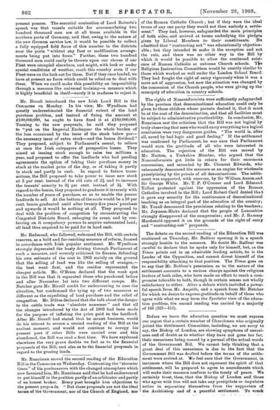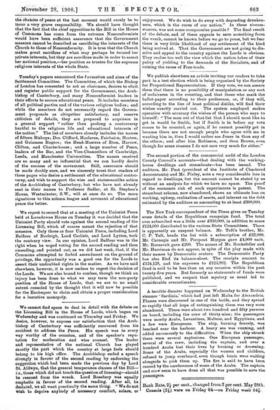Before' we - leave 'the education question' we must express our
regret that a certain-number of Churchmen who originally joined the Settlement Committee, including, we are sorry to say, the Bishop of London, are showing syluptoms of uneasi: ness and of doubt as to whether they have not gone too far, their uneasiness being caused by a perusal of the actual words of the Government Bill. We cannot help thinking that a great deal- of this uneasiness is due to the fact that the Government Bill was drafted before the terms of the settle- ment were arrived at. We feel sure that the Government, in instances where the Bill does not represent the spirit Of that settlement, will be prepared to agree to amendments which will make their measure conform to the treaty of peace. We certainly trust, then, that the Bishop of London and' those who agree with him will not take any -preeipitate'or impulsive action in separating themselves from the' supporters of the Archbishop and of a peaceful settlement: •'To *rock the ()helloes of peace at the last moment would surely be to incur a very grave responsibility. We should have thought that the fact that the chief opposition to the Bill in the House of CM:aions has come from the extreme Nonconformists Would have been sufficient assurance that the Government measure Cannot be deecribed as sacrificing the interests, of the 6itireh to those of Nonconformity. It is true that the Church Makes great sacrifices of what may perhaps be termed her private interests,,but they are sacrifices made in order to assert her national position,—her position as trustee for the supreme religious interests of the whole State.



















































 Previous page
Previous page